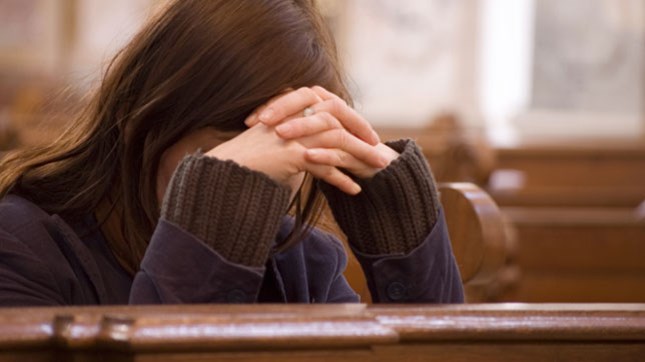Skill Builders
Article
Preaching on Abortion

Why should a preacher take the risk of addressing the subject of abortion from the pulpit? I know some pastors think it's too great a risk, that harm can only come from it, and it's better to play it safe and only deal with the topic in pastoral care situations. But as a woman who has had an abortion, I want my pastors to address it from the pulpit. As a matter of fact, when I first started attending church again—this time as a new believer—I was extremely puzzled as to why abortion was not talked about in the church. In the early days of my Christian faith I was receiving healing from the Lord in regards to my abortion. I knew the pastors were kind and godly leaders, and I had received compassionate pastoring from them regarding my abortion. Yet there was this weird silence ... a penetrating, deadly silence in Christ's church when it came to abortion.
After a while I started to wonder, Is my sin of abortion so unspeakable? Does my abortion, on a scale of all other sins, rank so despicably high that, though forgivable, can not be mentioned, not at the pulpit, not with prayer partners, not ever … not anywhere. Let me tell you, that is a very lonely place to be. I remember thinking if the devastation abortion has had on me, and countless other people sitting in these pews cannot be safely talked about in Christ's church, well, where can it be talked about?
The church's message that abortion is evil and not morally acceptable, is something the post-abortive Christian woman (or man) already knows. This is the truth that is breaking through in their heart and mind. This message is the truth that sets the captive free. This truth assures them they absolutely have reasons to grieve.
The fear of abortion
As I began my personal ministry surrounding abortion, and after speaking with others about this very topic, I came to see there was a great fear in speaking about abortion, especially from the pulpit. There is fear of seeming judgmental. There is fear that a flood of hurt, needy post-abortive women will be unleashed and there won't be resources to accommodate them (this just simply does not happen). There is fear of accusations of political bias—and more. But, if we are to look at this from a place of Christian concern, and if there is any real reason to fear, this is what we should be afraid of …
No more silence
Silence is a powerful weapon of the enemy. It is in silence that the enemy invades the territory of the post-abortive woman's heart. The enemy says, "See what you have done. It is so horrible that no one can even mention it. You are alone. Completely alone. Even your pastor will not speak of it. He may say there is no unforgivable sin but he skirts around abortion because it is that terrible. And if abortion is that terrible, you must be too." Oh, my dear brothers and sisters in Christ, it is in silence that the lies of the Evil One flourish.
The need for the gospel and hope
We know that one out of three women have had an abortion, and this means that they sit in the pews of our churches. The first baby step in healing from abortion is to know the truth about it so it can be confessed and healing can begin. The post-abortive woman must come to know that there is no condemnation in Christ Jesus in regards to her abortion. Only then can he begin to heal her broken heart and ultimately transform her life. We must—all of us—bring the gospel of the Lord to a culture of death that has been deceived and wounded, deeply wounded, by the tragedy of abortion.
I remember a pastor who had been the first to pray for me, for the healing of my abortion. The power of the crucifixion, the power of the prayers prayed over me, the richness of his grace—which is the doorway to God—spoke to me in that moment. I needed someone else to speak for me because I had, for years, slipped into the great darkness that swallows us up. But I was taught about God's love by this brother who knew the importance to speak and to pray for me. It was the life of these prayers—of his words—that brought me to the Father.
I would suggest addressing abortion in sermons as you would any other sin—with clarity, honesty, and compassion. Bring the hope of Jesus Christ into it—and leave them basking in it. When at all possible, couple the homily with a testimony from a post-abortive woman because sharing the stories of God's mercy, grace, and transformation connects us as people and adds to the message of hope in a very real way.
Jesus said, "Do not be afraid." We must not be afraid to speak. Too many lives depend on it.
Nancy Kreuzer is the Silent No More Regional Coordinator for the Chicago area.











